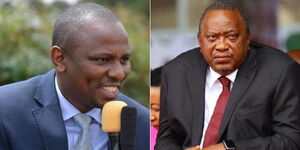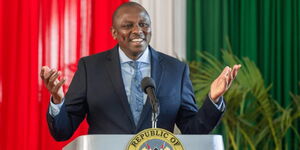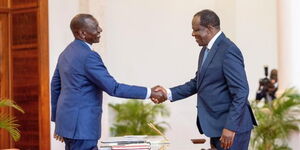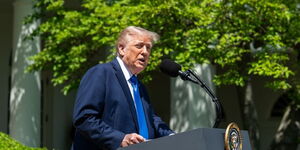The East African Legislative Assembly (EALA) ramped up efforts to realize a single East African Currency as it began preparing laws to set up institutions that need to be in place before the currency is rolled out.
House committees in Dodoma, Tanzania are collecting views on the East Africa Monetary Institute (EAMI) Bill, 2017 and the Statistics Bureau Bill, 2017, which have already gone past the first and second readings.
The EAMI bill being discussed by EALA's General Purpose Committee seeks to create an agency that will serve as EAC's Central Bank as well as formulate policies that are vital to the single currency's success.
The Statistics Bureau bill being deliberated on by the Committee on Communications and Trade is meant to establish an institution that will collect and analyze data to inform decision making on the process and the plan's implementation.
Kenya's East African Community and Northern Corridor Development Cabinet Secretary Peter Munya is among those lined up to give their views as the two committees engage various stakeholders on the Bills.
[caption caption="Members of EAC community partner states at a past event"] [/caption]
[/caption]
“The Council of Ministers for EAC is thus expected to meet with the committees to thrash out key matters on both Bills,” EALA noted in a statement.
Other agencies which must be established before the currency comes into existence include the Compliance and Enforcement Commission, East African Financial Services and the East African Surveillance.
The East African Monetary Union (EAMU) protocol was adopted by EAC member states and signed on 30 November 2013, setting the stage for individual states to progressively converge their currencies into a single currency within 10 years.
Member states are required to meet specific targets on public debt, inflation, forex reserves and fiscal deficit by 2021.
They must also ensure that their debt-to-GDP ratio is kept below 50 percent and fiscal deficit maintained at not more than 3 percent of GDP.
The individual states; Kenya, Uganda, Tanzania, Rwanda, Burundi and South Sudan must also keep inflation at 8 percent and hold forex reserves of 4.5 percent of import cover.
[caption caption="Presidents of EAC states after signing the East African Monetary Union protocol in 2013"] [/caption]
[/caption]












